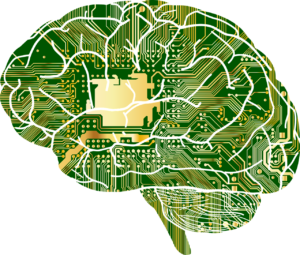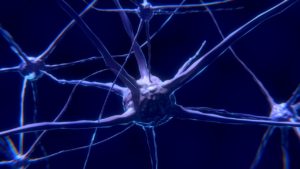It’s about time we started talking about your brain and nervous system, and how they can both have an enormous influence over the pain you are feeling right now. It’s true that your brain could actually be the reason that your sciatic nerve pain is getting worse. Therefore, we need to talk about what you can do about it!
Aims of this post:
- To talk about the role of the brain in pain so you can better understand why your sciatica isn’t better yet
- Learn what we can do to turn the brain into your “ally” rather than your “enemy”
- Handy techniques that can help to reverse problems with stress
Before we dive in, please be aware that we are part of the Amazon Affiliate programme. This page may contain Amazon affiliate links, so if you choose to purchase a product for your sciatica that we recommend through a link on this page, we will receive a small commission at no extra cost to you. This helps us keep Overcome Sciatica alive! Thank you for your support. Please be assured that we only ever recommend products that we truly believe can help.
How can the brain be the reason your sciatic nerve pain is getting worse?
In the past 10 years, our understanding of the role of the brain in pain has evolved massively. We have known for quite a while that without a brain, you cannot process pain.
There is a very rare natural phenomenon which explains how important the brain is when we talk about pain.
There is a condition called “congenital pain insensitivity” which is a mutation within a person’s genetic make-up that prevents the brain from interpreting pain messages in the intended way. People who suffer from it can experience touch and pressure, yet feel no pain.
This shows how important the brain’s influence on pain is; even though someone can damage a tissue, without a fully functional brain, they will not have a painful experience.
No functional brain = no pain
Feeling no pain sounds great, right? This sounds especially tempting when you feel that your sciatic nerve pain is getting worse, not better. Actually, if we look at the fate of the poor people who suffer from congenital pain insensitivity, we might think otherwise.
As children, we learn about what’s safe and what’s harmful through pain. If we put our hand on a hot stove, it hurts. What do we do next time we see a hot stove? We certainly wouldn’t be putting our hand near it again.
But what happens to the poor sufferers of this rare disease? They don’t get the same sense of danger that we get, so they don’t learn safety lessons as well.
The research has shown that, unfortunately, many of these people die early by severely damaging themselves without even being aware of it.
This point illustrates how pain, albeit extremely frustrating at times, is in fact very important.
Everyone’s pain is different
We also know that everyone’s interpretation of pain is very different. My experience of sciatic nerve pain will be completely different to your experience of sciatic nerve pain.
What else do we know about the brain? Well, we know that the brain has a huge influence on just how much pain we experience from a painful event.
The brain has the potential to amplify painful experiences. It can also dampen painful experiences down, too, depending on the situation and the context of our environment, mood and general health.
Yes, your brain can actually make you feel as though your sciatic nerve pain is getting worse, in the absence of any actual damage.
Have you ever been in an exciting, pulse-racing situation, then when you calmed down you realised that you’d strained something? Why didn’t you feel the pain at the time?
Most people put this down to adrenaline (which does play a role) but the brain was heavily involved here, almost selectively ignoring the tissue damage because our attention was urgently required elsewhere.
Equally, have you ever been in the middle of an extremely stressful day and felt that your sciatic nerve pain is getting worse as a result? Usually, negative emotions like stress amplify the way we feel pain.
Allowing ourselves to become incredibly focused on the pain we are experiencing can also amplify it. If you’ve ever been in a boring lecture or car journey and felt your sciatic nerve pain getting worse the more you think about it, you’ll have experienced this phenomenon.
It’s important for us to address both the physical aspect of sciatica and the component that is the responsibility of the brain, too. With this two-pronged approach, I feel you will definitely have an advantage when fighting against your own sciatic nerve pain problem.
When the nervous system goes wrong
The nervous system is the massive network of nerves that start in the brain, then become the spinal cord, then split off to supply all the nerves in the body. It is a huge, mega-network which would cover an enormous area if someone took it out of your body.
The nervous system is really important for relaying messages about touch, sensation, pressure and pain.
However, it is a system that can sometimes go wrong.
When a person has been experiencing pain for a long time, they may go through a process called “central sensitisation”. This is where the nerves in the body and the brain become so sensitive from carrying pain signals all day long, that even when we are confronted with a non-painful situation, we still feel pain.
You can think of this as your nervous system being in a constant state of “red alert”, being ready to send pain signals up to your brain at even the first sign of danger.
When you’ve had a spinal injury, like a disc herniation, the nerves in your back and spinal cord are certainly likely to be very sensitised. That’s why we can feel an enormous amount of pain from such a small movement, like bending forward a few inches, in some case.
In this case, it is actually your brain and central nervous system working together to make it feel like your sciatic nerve pain is getting worse… even though there’s been no addition injury to your back or sciatic nerve!
Are You Looking for RAPID Relief from Sciatica?
My good friend, colleague and fellow international sciatica expert, Dean Volk, has a brand new sciatica relief video course available – and I’m delighted to be an official sponsor!
Check out Dean Volk’s “Kicking Sciatica OUT of the Butt!” Online Pain Relief Course Here!
I can proudly recommend Dean and his course for sciatica sufferers – because I’ve seen his incredible results first-hand. You can check out his course (and get lifetime access to the videos and bonus content) by clicking HERE.
What treatments can help people with back pain and sciatica? Click here to read more.
So what can we do about this?
The key here is to be GENTLE with yourself!
We need to find a way to de-sensitise the nerves in your body. There are several ways to do this.
-
De-stress
Nerves respond very strongly to stress. When we are stressed, our nerves increase this hyper-sensitivity, making it feel like your sciatic nerve pain is getting worse. Equally, when we are relaxed, this hyper-sensitivity reduces, and we feel less pain. I wrote an entire article on how important it is to find relief from stress when you are suffering from sciatic nerve pain HERE.
If you suffer from pain when sitting, or pain when you stand up after sitting, see the articles linked in this sentence!
To read more about ways to de-stress (which will also improve your sleep), click HERE.
-
Very gentle PAIN-FREE spinal movement
Most people will have at least one, very small movement that they can do with their back that doesn’t cause them too much pain. That’s good! Find it and write it down. Then repeat it, probably just 5 times to begin with, in a range that is pain free/the pain is minimal.
You must avoid painful movements for the moment! They will increase your sensitivity! Stick to the pain-free ones for now for a great benefit.
To read about some more brilliant ways to improve your spinal movement, click HERE.
-
Massage and manual therapy
If you have access to a spouse who can very gently (almost like brushing your skin) massage your back, this will encourage everything to calm down. Again, this should be pain-free!
Alternatively, a physiotherapist, chiropractor or osteopath (who specialises in gentle hands-on techniques) can help with this.
Will these treatment techniques work for you? Click here to read more.
-
Use an acupressure mat for immediate sciatic nerve pain reduction
I have been hearing loads of good feedback about acupressure mats at the moment from my clients. Basically, they are mats that you lay on that are made up of many plastic spikes; I know, it sounds horrible! But when you lay your entire back on them, the pressure is spread throughout your back so they aren’t actually painful at all.
We don’t fully understand the mechanism behind these mats, but we think the stimulation from laying on them can reduce pain sensitivity, almost immediately.
This one here is a fantastic option, and one that has great reviews for a reasonable price. You can go through my affiliate link below if you’d like to purchase this one, and I’ll receive a small commission (thanks if you do!)
Supportiback® Wellness Therapy Acupressure Mat & Pillow Set – Relieve Back And Neck Pain, Relax Muscles, Relieve Insomnia – Includes Washable Cover, Travel Bag
Alternatively, you can have a look at some of our other recommended products for immediate sciatica pain relief.
Summary
I hope you have learnt something from this post about how the brain and nervous system can influence the pain we feel from sciatica.
If you have benefited from this article, I would really appreciate you sharing it with anyone you know who is suffering from back or sciatic nerve pain, so they can benefit too!
Alternatively, if you’d like to let me know directly, have any feedback or need some advice, simply comment below and I’ll get back to you!
As always, thanks for reading.
The information on Overcome Sciatica should never be used as a substitute for medical advice from a doctor. Never put into action any tips or techniques from Overcome Sciatica without checking with your doctor first. Please see full terms of use here.






